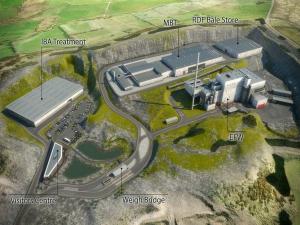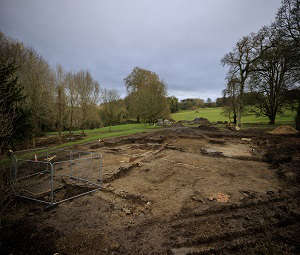
By Q Radio news
Waste processing arrangements are drifting towards a crisis, according to a group of local councils in Northern Ireland.
Arc21 is awaiting a Stormont decision on plans to build a major waste incinerator plant in North Belfast.
A 2018 court judgment placed a question mark over the infrastructure minister’s powers to take significant planning decisions like that without the approval of the wider executive.
Arc21’s acting chief executive Tim Walker said: “Northern Ireland is drifting towards a waste crisis because we do not have enough local facilities to treat non-recyclable household waste, let alone our commercial and industrial waste.
“At present we rely on landfill and waste exports to solve the problem, but both options may be unavailable within the decade.
“Northern Ireland has already committed to a 10% cap on the amount of waste we send to landfill and several export markets have already closed or imposed punitive taxes on waste.”
Arc21 is an umbrella waste management group for six local councils in the east of Northern Ireland.
It works to drive forward innovative waste management programmes including the development of infrastructure.
The organisation believes existing arrangements will become not only “unsustainable, but also increasingly expensive” and will not meet the needs of a modern economy.
In September, the infrastructure minister vowed to push ahead with a series of major planning decisions after a law change clarified her powers.
Nichola Mallon said the granting of royal assent to the Executive Committee (Functions) Act enabled her to decide without recourse to executive colleagues.
She told the Assembly she hoped to soon be in a position to take decisions on controversial applications to redevelop Casement Park in west Belfast and build the incinerator plant.
Mr Walker added: “The arc21 region produces the equivalent of 15 million black bins’ worth of household waste every year.
“That’s 15 million reasons to say yes to new facilities at Hightown that will give us breathing space to transition to a fully functioning circular economy whilst removing the potential risk of a systemic failure in household waste services.”


 Remains of 300-year-old building complex unearthed by chance on country estate
Remains of 300-year-old building complex unearthed by chance on country estate
 Fresh Met Office warning for icy conditions across Northern Ireland
Fresh Met Office warning for icy conditions across Northern Ireland
 Community still in shock over deaths of father and son, funeral told
Community still in shock over deaths of father and son, funeral told
 Hugo Duncan dedicates MBE honour to late mother who raised him on her own
Hugo Duncan dedicates MBE honour to late mother who raised him on her own
 Police concern over large gathering of youths at Belfast interface
Police concern over large gathering of youths at Belfast interface